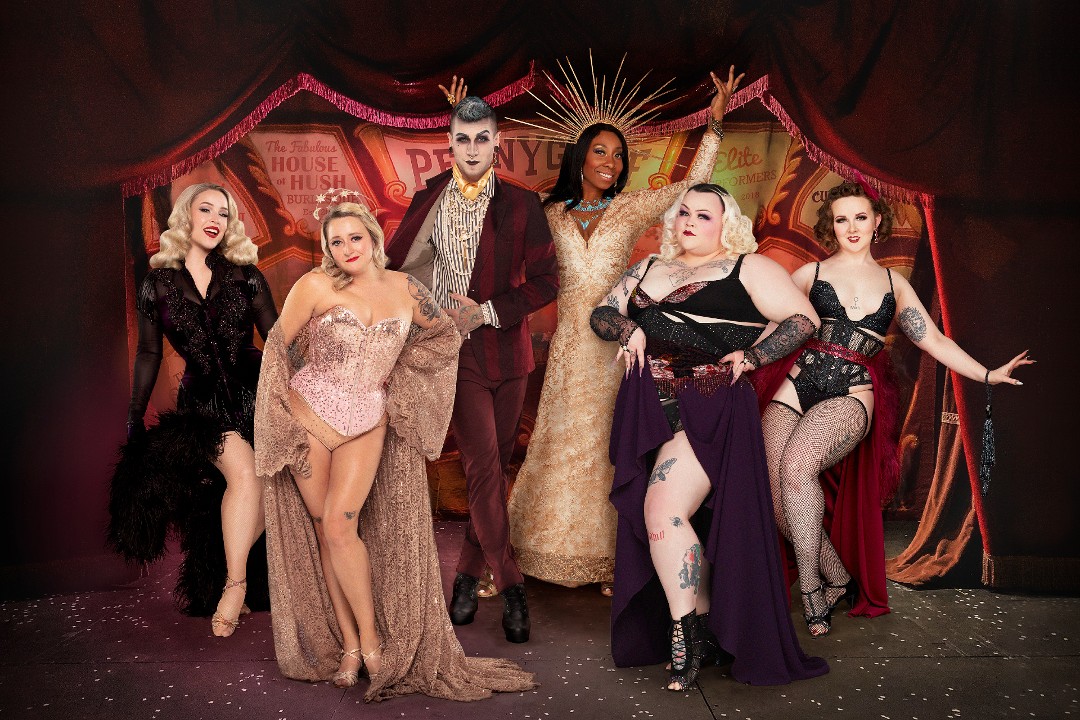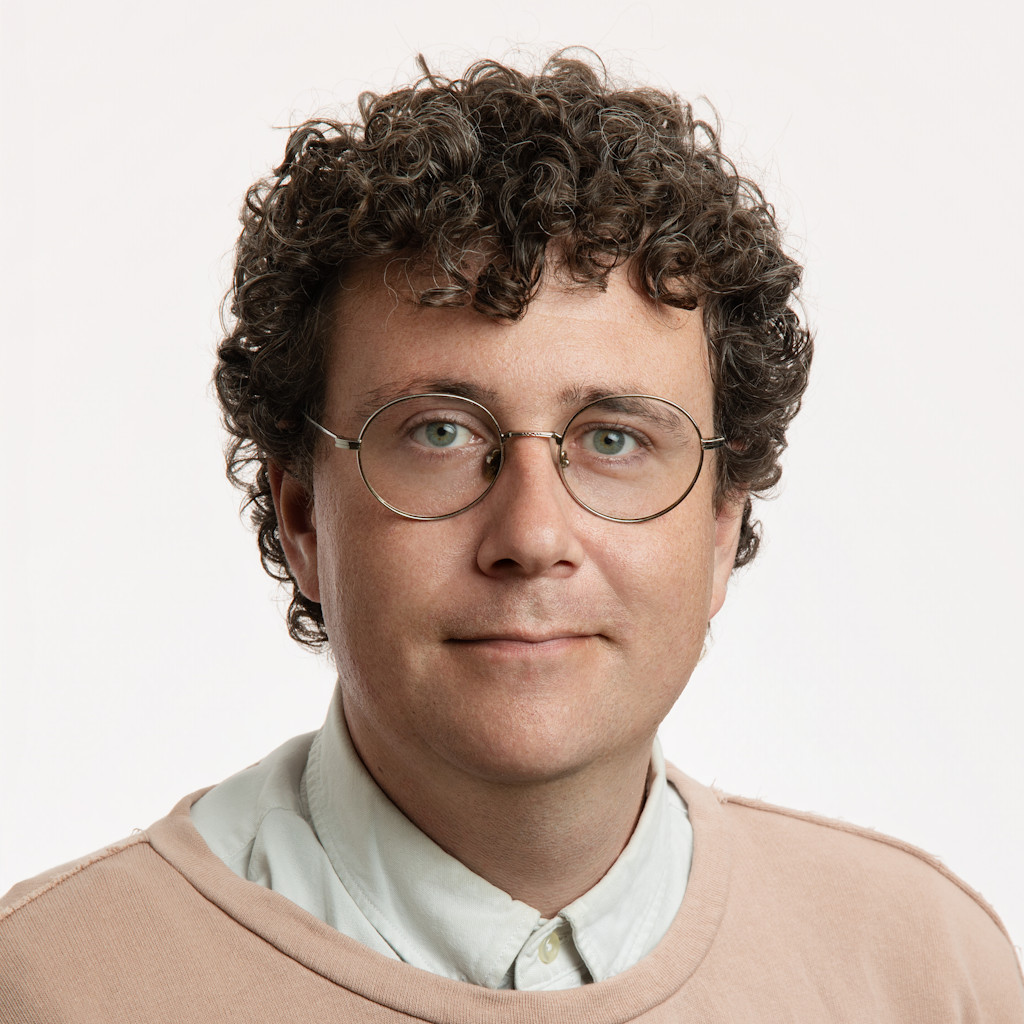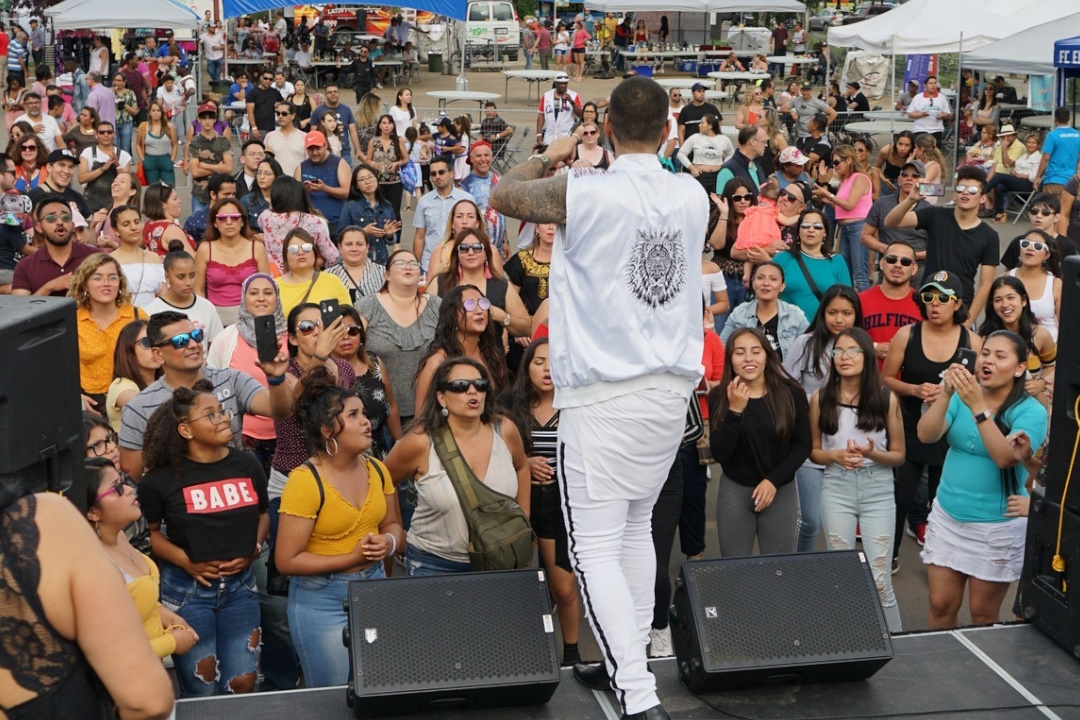
Burlesque Follies explores art form's history at K-Days
A new show based on burlesque's history will premiere at K-Days inside the exhibition's newly installed Cristal Palace Spiegeltent.
"I think a lot of people think burlesque is a recent fad, and it's not," said Delia Barnett, who performs burlesque as LeTabby Lexington. "It's been around for over 100 years, and it's had its ebbs and flows, and it's had, technically, three or four big boom periods."
Barnett is a co-founder of House of Hush, the troupe performing a new show called Burlesque Follies inside the Cristal Palace Spiegeltent at K-Days. The show runs most nights from July 21 to 30.
"(The show) was created specifically for this opportunity. I'm a huge nerd and I love history," she told Taproot. "Burlesque shows didn't used to be like what you see at a burlesque show now. Burlesque shows now, you mostly see wonderful performers who do tease dancing, skit bits, and whatnot. But there was a period of time where the burlesque shows were more like vaudeville variety shows."
Burlesque Follies will celebrate that history by taking a multidisciplinary approach to its programming. Without giving away too much, audiences can expect poetry, dancing, singing, clown, and comedy — alongside the teasing element burlesque is known for.
"The term burlesque actually comes from an Italian word which means to satirize or make strange. And so I am satirizing burlesque, in that act of what a sexy burlesque dancer is, as done by a clown," Barnett said.
Her connection to burlesque's history is also a familial one. Her grandmother performed burlesque at the Canadian National Exhibition in Toronto back in the 1950s.
"I didn't actually find out that she did this until after she died, when I saw some photos," Barnett said. "One is her in a lederhosen-y, sort of Deutsch girl look. The other one is her in a beautiful gown, and then I have pictures of her posing in her bikini in the snow at her house — I recreated that photo a couple of years ago."
Spiegeltents are mobile performance venues that became popular at European fairs in the early 1900s. They have historically hosted many types of events, including burlesque. The name is Flemish for "mirror tents," due to the 360-degree mirrors that surround the performance space. The one at K-Days was built in 1947 and is one of three in use in North America, according to West Coast Spiegeltents proprietor Peter Goossens.





